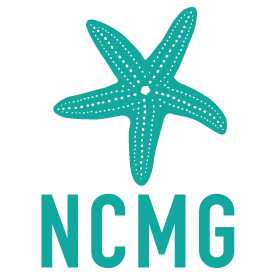A healthy ocean is critical to our survival
Our ocean has been doing a lot of heavy lifting, limiting the effects of climate change. Covering 70% of the earth’s surface, it has absorbed about half of our CO2 emissions and 90% of the heat we have produced since the Industrial Revolution. However, it is not the limitless sink for all our rubbish, toxins and heat that we have long believed.
In a new series of Batemans Bay U3A talks on Climate Change: from global to local, Dr Jane Elek from Nature Coast Marine Group has explained that our ocean is starting to suffer. "Absorbing all that CO2 has increased the acidity of the ocean by one third, which threatens to disrupt the formation of shells of all marine molluscs, including those of oysters and abalone, and skeletons of coral and possibly fish. This will not only be devastating for coral reefs and shellfish industry, but will have flow-on effects for the whole of the food chain. “
“And if the ocean had not absorbed 90% of the additional heat in the atmosphere trapped by greenhouse gases, we would be cooking already”, says Dr Elek. “But we are paying a price. According to the latest figures by the Bureau of Meteorology, the waters along the east coast of Australia are 30warmer than average this summer, causing more severe storms and rain. It is also contributing to alarming decline of our kelp forests. Tasmania has already lost 95% of its iconic kelp forests, and 50% of our local reefs in the southeast are now urchin barrens.”
Kelp does not like the heat but urchins that feed on it thrive in warmer water. A new project just starting, a cooperation of fishers, first nationals, conservationists and academics, is planning to cull urchins in urchin barrens in the southeast to try to restore the kelp forests (Eurobodalla Shire Independent Feb 23rd, 2023).
“A healthy ocean is critical to our survival”. Globally, we urgently need to reduce emissions that are causing acidification and warming. Locally, we need to do what we can to keep our oceans healthy. This includes increasing the areas with full protection since that has been shown to increase the resilience of marine ecosystems. The National Government has made a good start towards Australia’s pledge to protect 30% by 2030 by increasing the area of protection around Macquarie Island. Now the State government needs to follow suit and increase the area of State waters with full protection (no fishing) from its current level of less than 20% to 30%.
Please join the Nature Coast Marine Group on March 12th, 10am at Bar Beach, Narooma, to show your support for our marine sanctuaries in Batemans Marine Park.
Thanks to Dr Karin Geiselhart, who has been a strong advocate for sustainability in the face of climate change for many years, U3A Batemans Bay has been providing a forum for a number of speakers to raise awareness of the issues we face due to our changing climate. The talks have been aimed at helping attendees to understand the ripple effects of climate change from the global to the local perspective. In previous talks we have heard about impact of Climate Change on our health, the Antarctic and agriculture. We have heard Dr Andrew Elek talk about the economic costs and benefits, and the policies needed from our government to provide incentives for climate action by both companies and us individually. Coming up, Allan Rees from 350.org and Kathryn Maxwell of SHASA will explain more about actions in our local community and what more we can do individually to reduce our emissions and Karin will round off the series.
Climate change is here and we need to act now. We need to spread the word. We need to support our politicians and our government to act, and be prepared for short term pain for longer term gain.
Contact: Dr Jane Elek
0427197577
Seal Photos: Jen Thompson, NCMG

